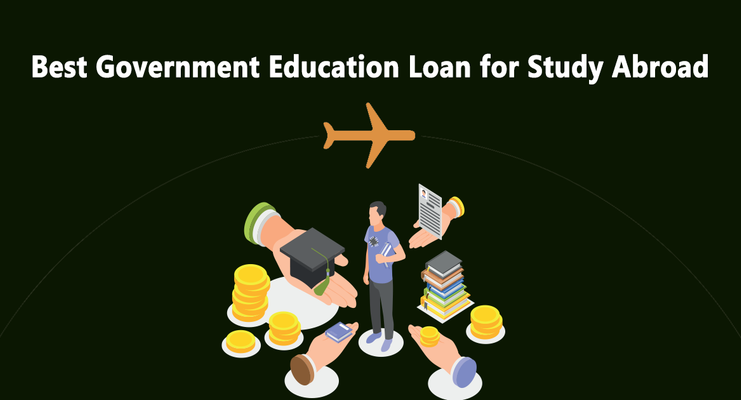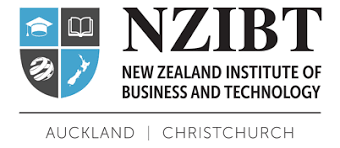Best Government Education Loan for Study Abroad
6 mins read 1842 Views
By Prabhadri Suman|Updated On - 2023-12-17 17:38:36
Explore the best government education loan options available for studying abroad and make informed decisions for your future.

Topics Covered:
- What are Government Education Loans?
- Benefits of Government Education Loans
- Types of Government Education Loans for Study Abroad
- Top Government education loan for studying abroad
- Eligibility Criteria for Government Education Loans
- Documents Required for Loan Application
- Documents Required for Abroad Education Loan
- Interest Rates and Repayment Options
- Application Process for Government Education Loans
- Government Banks vs. Private Banks
- Tips for a Successful Loan Application
- Conclusion
The Government of India has implemented several schemes and interest subsidies to provide financial assistance to students like you. These initiatives are designed to support those from economically weaker sections and marginalized communities in their educational pursuits. In this comprehensive guide, we will explore the best government education loan options for studying abroad and how you can benefit from them.
Studying abroad is an exciting opportunity that comes with its fair share of challenges, one of which is managing the financial aspect. While scholarships are available, they can be highly competitive, leaving many students searching for alternative funding options. One such option is the government education loan for study abroad programs. In this comprehensive guide, we will explore the various types of government education loans available to Indian students, the eligibility requirements, and the application process.
What are Government Education Loans?
Studying abroad can be a life-changing experience, but it often comes with a hefty price tag. Tuition fees, living expenses, and other costs can quickly add up, making it necessary for many students to seek financial assistance. Government education loans are essentially a type of financial aid obtained by students to cover the costs related to their education. These loans can be acquired through various means such as funding, scholarships, financing, and incentives. The loan amount is given in cash and must be reimbursed to the lender along with an interest rate.
Government education loans are loans provided to eligible students who need financial assistance to cover higher education costs. The federal government usually offers these loans through programs like Direct Subsidized Loans and the Ford Federal Direct Loan Program
Benefits of Government Education Loans
Government education loans for studying abroad offer several benefits to students. Let's explore some of the advantages:
- Lower interest rates: Government-backed loans often come with lower interest rates compared to loans offered by private banks. This helps reduce the overall cost of borrowing.
- Flexible repayment options: Government education loans offer flexible repayment options, allowing students to repay the loan after completing their studies and securing employment.
- Grace period: Many government education loans provide a grace period before the repayment period begins. This allows students to focus on their studies without the immediate burden of loan repayment.
- Tax benefits: Repayment of education loans is eligible for tax benefits under Section 80E of the Income Tax Act. This can help reduce the tax liability for borrowers.
- Loan amount: Government education loans generally offer higher loan amounts compared to private banks, allowing students to cover a significant portion of their study expenses.
It is important for students to carefully evaluate the benefits offered by different lenders before making a decision.
Types of Government Education Loans for Study Abroad
There are various types of government education loans for studying abroad. These loans can cover tuition, fees, and other eligible expenses, with any leftover funds disbursed to the student. It is essential to research and understand the specific terms and usage of the loans before borrowing. Students can fill out the FAFSA to apply for federal loans.
Central Government Education Loan Schemes
The Indian government offers several loan schemes specifically tailored for students pursuing higher education abroad. Various government bodies and financial institutions administer these schemes. Here are some of the most popular central government education loan schemes:
- Vidyalakshmi Education Loan Scheme: Administered by the Ministry of Finance, this scheme provides financial assistance to students pursuing higher education in India and abroad. It offers loans up to INR 20 lakhs without collateral, making it accessible to a wide range of students.
- Canara Bank's Education Loan Scheme: Canara Bank, in collaboration with the Indian Banks' Association, offers education loans to Indian students studying abroad. The loan covers tuition fees, living expenses, and other related costs. The interest rate is competitive, and the repayment period is flexible.
- SBI Global Ed-Vantage Scheme: State Bank of India (SBI) provides education loans under the Global Ed-Vantage scheme to students who have secured admission to prestigious institutions abroad. The loan covers tuition fees, living expenses, and other incidental costs. The interest rate is linked to the Marginal Cost of Funds-based Lending Rate (MCLR).
State Government Education Loan Schemes
In addition to central government schemes, various state governments also offer education loan schemes for students pursuing higher education abroad. These schemes are designed to cater to the specific needs of students from each state. Some of the prominent state government education loan schemes include:
- Kerala State Education Loan Scheme: The government of Kerala provides education loans to deserving students from the state who wish to pursue higher education abroad. The loan covers tuition fees, living expenses, and other related costs. The interest rate is subsidized, making it affordable for students.
- Tamil Nadu State Loan Scheme: The government of Tamil Nadu offers education loans to students from the state who have secured admission to recognized institutions abroad. The loan covers tuition fees, living expenses, and other incidental costs. The interest rate is relatively low, and the repayment period is flexible.
Banks and Financial Institutions
Apart from government schemes, banks and financial institutions also offer education loans for study abroad programs. These loans are often tailored to meet the specific needs of students and come with competitive interest rates and flexible repayment options. Some of the leading banks and financial institutions providing education loans for study abroad include:
- State Bank of India (SBI): SBI offers education loans to Indian students pursuing higher education abroad. The loan covers tuition fees, living expenses, and other related costs. The interest rate is competitive, and the repayment period is flexible.
- HDFC Bank: HDFC Bank provides education loans for study abroad programs, covering tuition fees, living expenses, and other incidental costs. The interest rate is competitive, and the repayment period can be extended up to 15 years.
Want to study in top universities abroad? Get Free Expert Guidance Click Here!
Top Government education loan for studying abroad
Before we delve into the specific schemes and interest subsidies, it's important to understand that these initiatives are not direct loans. Instead, they offer financial aid and interest subsidies to eligible students. By availing these schemes, you can benefit from reduced interest rates, flexible repayment options, and other forms of support. It's worth noting that these schemes are linked with the Indian Banks Association (IBA), and therefore, only banks that are members of the IBA are eligible to offer them. Loans from NBFCs (Non-Banking Financial Companies) are not eligible for these schemes.
Now, let's explore the top government education loan schemes for studying abroad:
1. Dr. Ambedkar Central Sector Scheme
The Dr. Ambedkar Central Sector Scheme provides interest subsidies on education loans for meritorious students who have secured admission in approved courses at Masters, M.Phil, or Ph.D. levels abroad. This scheme aims to empower students from economically weaker sections and marginalized communities to pursue their academic goals.
To avail of this scheme, you need to meet certain eligibility criteria, which may include securing admission to a recognized foreign university, having a good academic record, and meeting income requirements. The interest subsidy is provided during the moratorium period, which is the period when you are not required to make any repayments on the loan. This subsidy helps reduce the financial burden on students and their families.
2. Central Sector Interest Subsidy (CSIS)
The Central Sector Interest Subsidy is a scheme formulated by the Ministry of Human Resource Development and the Department of Higher Education. It aims to provide interest subsidies on education loans to students from economically weaker sections who wish to pursue technical or professional courses in India.
Under this scheme, students can avail of interest subsidies during the moratorium period. The moratorium period usually extends from the completion of the course or six months after securing employment, whichever is earlier. This scheme enables students to pursue their chosen courses without the burden of high-interest rates, making education more accessible and affordable for economically disadvantaged students.
3. Interest Subsidy Scheme by the Government of Gujarat
The Government of Gujarat has also implemented an interest subsidy scheme to support students from the state who wish to pursue higher education abroad. Under this scheme, students can avail of interest subsidies during the moratorium period.
To be eligible for this scheme, students must fulfill certain criteria, including being a domicile of Gujarat, securing admission to a recognized foreign university, and meeting income requirements. This scheme provides a helping hand to students from Gujarat who aspire to pursue their dreams of studying abroad.
4. Padho Pardesh Scheme
The Padho Pardesh Scheme is another notable initiative by the Government of India that provides financial assistance to students from minority communities who wish to pursue higher education abroad. This scheme aims to empower students from minority communities and bridge the gap in educational opportunities.
Under the Padho Pardesh Scheme, students can avail of interest subsidies during the moratorium period. The scheme has specific eligibility criteria, including securing admission to a recognized foreign university, meeting income requirements, and belonging to a minority community. This scheme opens doors for students from minority communities, enabling them to explore educational opportunities abroad.
Eligibility Criteria for Government Education Loans
Students must meet certain criteria to be eligible for a government education loan for study abroad. While the specific requirements may vary depending on the loan scheme and lending institution, here are some common eligibility criteria:
- The student must be an Indian citizen.
- The student should have secured admission to a recognized institution abroad.
- The student and/or their parents must have a good credit history.
- The student's academic performance should meet the minimum eligibility criteria set by the lending institution.
- The student and/or their parents must have a stable source of income to repay the loan.
Documents Required for Loan Application
When applying for a government education loan for study abroad, students must submit certain documents to support their loan application. While the exact documentation may vary depending on the loan scheme and lending institution, here are some common documents:
- Admission Letter: A copy of the admission letter from a recognized institution abroad.
- Cost of Education: A detailed breakdown of the cost of education, including tuition fees, living expenses, and other related costs.
- Academic Records: Transcripts and certificates attesting to the student's academic qualifications.
- Identity Proof: Proof of identity, such as a copy of the student's passport or Aadhaar card.
- Address Proof: Proof of address, such as a copy of the student's utility bill or rental agreement.
- Income Proof: Documents demonstrating the student and/or their parents' source of income, such as salary slips, income tax returns, or bank statements.
- Collateral Documents: If applicable, documents related to collateral offered as security for the loan.
Documents Required for Abroad Education Loan
When applying for an education loan for studying abroad, certain documents need to be submitted as part of the application process. Here is a list of the commonly required documents:
- Fully completed application form
- Academic records
- Passport photos
- KYC records
- Bank statements as proof of residence
- Income evidence
- Collateral records
- Birth certificate
- Official letter of acceptance from a recognized university
Gathering all the necessary documents is important to ensure a smooth application process.
Interest Rates and Repayment Options
Interest rates and repayment options for government education loans vary depending on the loan scheme, lending institution, and loan amount. Here are some key points to consider:
- Interest Rates: Government education loans generally have lower interest rates than other financing forms. The interest rate may be fixed or floating, and it is important to understand the terms and conditions associated with the loan.
- Repayment Period: The repayment period for government education loans can range from 5 to 15 years, depending on the loan amount and the lending institution. Some schemes may offer a moratorium period during study.
- Repayment Options: Repayment options include equal monthly installments (EMIs) or customized repayment plans based on the student's financial situation. Some schemes also offer incentives for early repayment.
Application Process for Government Education Loans
Applying for a government education loan for study abroad involves several steps. Here is a step-by-step guide to help you navigate the application process:
Step 1: Research and Select the Right Loan Scheme
Start by researching the various government education loan schemes available to Indian students. Consider factors such as interest rates, repayment options, and eligibility criteria. Choose a loan scheme that aligns with your financial needs and goals.
Step 2: Gather the Required Documents
Collect all the necessary documents required for the loan application. Refer to the list provided by the lending institution or loan scheme to ensure you have all the required paperwork in order.
Step 3: Approach the Lending Institution
Visit the lending institution's branch or website to inquire about the loan application process. Speak to a loan officer or customer service representative who can guide you through the application process and address any queries.
Step 4: Submit the Loan Application
Complete the loan application form and submit it along with the required documents. Ensure that all the information provided is accurate and up to date. Double-check the application form before submission to avoid any errors.
Step 5: Loan Approval and Disbursement
Once your loan application is submitted, it will be verified and approved. The lending institution will assess your eligibility based on various factors such as academic qualifications, financial stability, and credit history. The loan amount will be disbursed directly to the institution abroad if approved.
Government Banks vs. Private Banks
Regarding education loans for studying abroad, both public-sector and private banks offer attractive loan schemes. Let's take a closer look at the options provided by each.
Loans from Public-Sector Banks
Public-sector banks in India offer education loans to students who wish to study abroad. These loans are usually offered against collateral provided by the borrower. Public-sector banks have dedicated loan schemes for education, providing lower interest rates compared to private banks. The maximum loan amount offered by public-sector banks varies, with unsecured loans typically limited to INR 7.5 lakhs. For loan amounts greater than this, collateral is required.
Loans from Private Banks
Private banks also offer education loans for studying abroad. The loan amounts offered by private banks depend on various factors, including the borrower's profile and the financial status of their co-applicants. Private banks generally have higher interest rates compared to public-sector banks but offer faster processing times for loan applications.
It is essential for students to carefully consider both public-sector and private banks before making a decision. Comparing interest rates, loan amounts, repayment options, and processing times can help students make an informed choice.
Tips for a Successful Loan Application
To increase your chances of a successful loan application, consider the following tips:
- Start Early: Begin the loan application process well in advance to allow sufficient time for document collection, verification, and approval.
- Research and Compare: Thoroughly research different loan schemes and lending institutions to find the best interest rates and repayment options.
- Maintain a Good Credit History: Ensure you and/or your parents have a good credit history by making timely payments on existing loans or credit cards.
- Prepare a Strong Application: Present all the required documents accurately and provide additional supporting documents, if necessary, to strengthen your application.
- Seek Professional Guidance: If you need clarification on the loan application process, consider seeking guidance from a financial advisor or loan consultant.
Helpful calculator to Calculate ==> CGPA to Percentage
Conclusion
Government education loans for study abroad can be a valuable funding source for Indian students aspiring to pursue higher education overseas. By understanding the various loan schemes, eligibility criteria, and application process, students can make informed decisions and secure the necessary financial support to fulfill their study abroad dreams. Remember to start the application process early, gather all the required documents, and seek professional guidance. With proper planning and research, you can make your study abroad journey a reality.
The Edmissions team is here to provide you with help throughout the college application process. Before you submit your application to your desired college or university, it is recommended that you get in touch with a Edmissions specialist by registering on the website
edmissions.com
.
To learn more about application processing, contact our Edmissions specialists at [email protected]
For a quick overview related to study abroad, click here
Latest Blog Posts
Trending Posts
Popular Colleges to Study Abroad
Blog FAQ's
Top Study Abroad Exams
Popular Universities to Study Abroad
- University of Waterloo
Waterloo
- University Canada West
Vancouver
- University of Windsor
Windsor
- Cape Breton University
Sydney
- Dalhusie University
Halifax
- Carleton University
Ottawa
- University of Ottawa
Ottawa
- University of Guelph
Guelph
- Explore more colleges in Canada
- University of New Haven
West Haven
- Kent State University
Kent
- Wright State University
Dayon
- San Jose State University
West Haven
- Clark University
Worcester
- Rowan University
Glassboro
- Golden Gate University
San Francisco
- Arkansas
San Francisco
- Explore more colleges in USA
- Coventry University
Coventry
- University of Birminghame
Birminghame
- De Montfort University
Leicester
- Cardiff University
Cardiff
- BPP University
London
- University of West London
London
- University of Nottingham
Nottingham
- University of Warwick
Coventry
- Explore more colleges in UK
- Auckland Institute Of Studies
Auckland
- Massey University - Auckland Campus
Albany
- Eastern Institute of Technology - Auckland Campus
Auckland
- NorthTec - Auckland Campus
Auckland
- Massey University - Manawatu Campus
Palmerston North
- University of West London
London
- Wellington Institute of Technology (WelTec) - Petone Campus
Lower Hutt
- Otago Polytechnic - Dunedin Campus
Dunedin
- Explore more colleges in New Zealand
- Chandigarh University
Mohali
- Parul University
Vadodara
- Sharda University
Greater Noida
- Jain University
Bangalore
- Bennett University
Greater Noida
- Lovely Professional University
Phagwara
- Chitkara University
Rajpura
- Brainware University
Kolkata
- Explore more colleges in India
- Abu Dhabi University
Abu Dhabi
- Gulf Medical University
Ajman
- New York University
Abu Dhabi
- Emirates Aviation University
Dubai
- Higher Colleges of Technology
Dubai
- British University in Dubai
Dubai
- Al Ghurair University
Dubai
- American University in the Emirates
Dubai
- Rochester Institute Of Technology Dubai
Dubai
- Emirates Academy of Hospitality Management
Dubai
- American University of Ras Al Khaimah
Ras Al Khaimah
- Explore more colleges in UAE
- Ras Al Khaimah Medical and Health Sciences University
Ras Al Khaimah
Search, Shortlist, Apply and get accepted! It’s that Simple to pursue your dream to Study abroad with Edmissions. Our team of experts provide you the right guidance that helps you to take admission in your dream college in countries like Canada, the USA, the UK
© 2021-2024 Edmissions - All rights reserved.
TALK TO OUR EXPERTS











